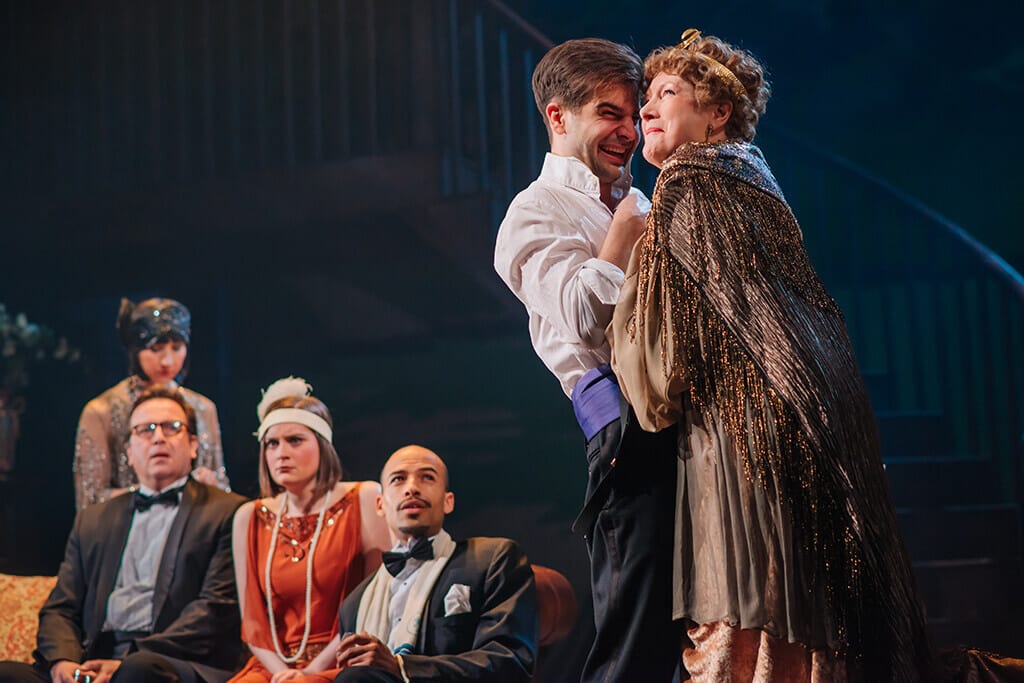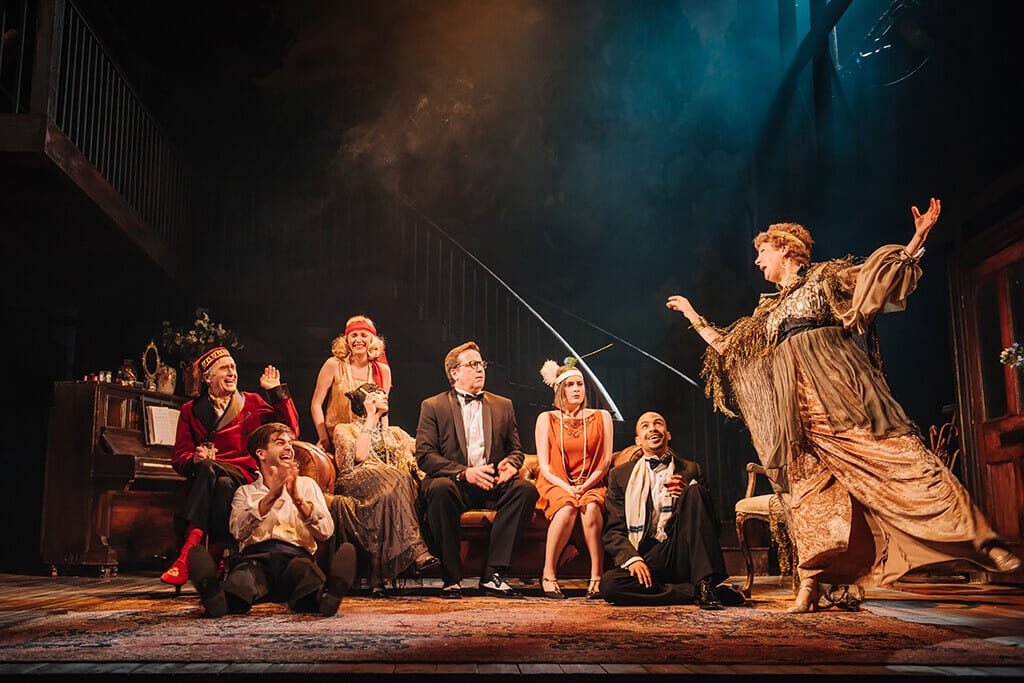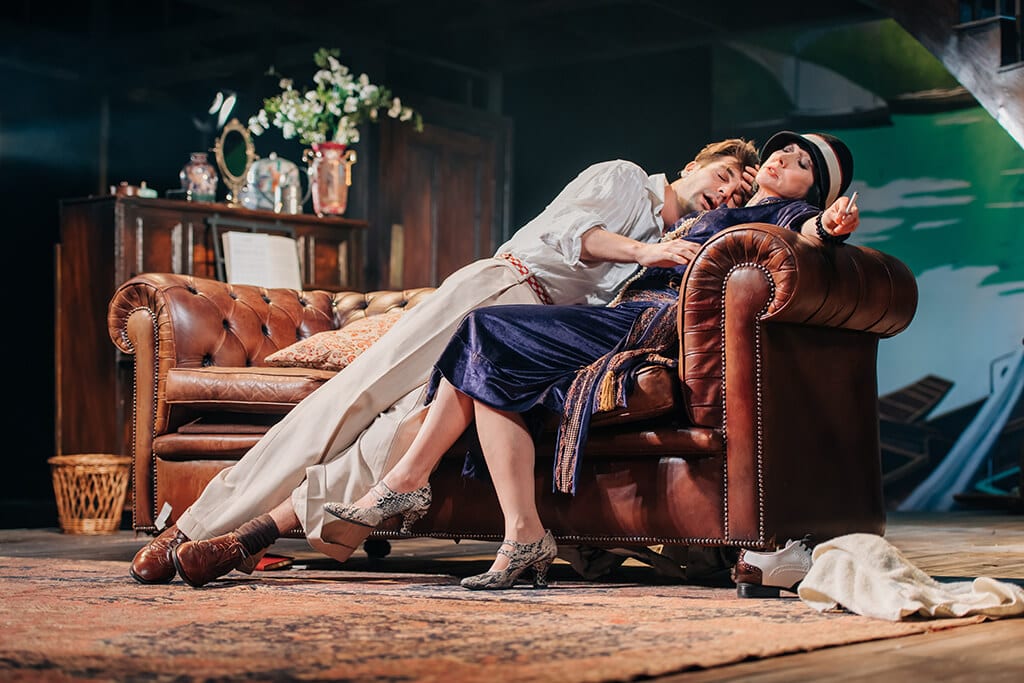The world of Hay Fever is split in two. On one side is the Bliss family, fabulous and Bohemian, smoking endless, effortless cigarettes and calling everybody ‘dah-ling’. They thrive on an atmosphere of contrived drama and don’t care who gets caught up in the fallout. On the other side are their bemused guests, invited to share this world for a weekend and getting far more than they bargained for.
The play itself is a fine piece of work. The language is tight and precise, while keeping up with the sharp verbal exchanges feels like playing one of the Bliss family’s parlour games. Indeed, the whole play is one long game. The Blisses – author David, retired actress Judith and their children, the louche Simon and hysterical Sorel – live like they are on stage, acting (and acting up) in front of each other and their guests.
The superficial air that surrounds them might make the whole piece feel rather inconsequential in less skilful hands but Noël Coward brings just enough depth to the play to ensure it is not just a piece of froth. The final scene shows the Blisses bickering in rather conventional fashion around the breakfast table. Once the eyes of their audience are averted, they drop the act and behave ‘normally’, a mild deception which we are all guilty of.
However, that act is only dropped once the drama and hilarity of the play have been ratcheted to fever pitch. One scene between Jackie and Richard (two of the guests, played by Katie Barnett and Hywel Simons) contains little dialogue but so much strained silence that the audience become almost breathless with laughter. Indeed, Barnett’s nerve-wracked Jackie is a constant source of hilarity throughout while Pauline Knowles is fantastic as the icy Myra Arundel.
If the acting occasionally borders on hysterical or slips into caricature, it can perhaps be forgiven. Rosemary Boyle (as Sorel) and Charlie Archer (as Simon) have the tough job of playing characters who themselves play parts throughout most of the play, and do become rather broad on occasion. Fortunately, the humour of the situations and the acting of the ‘straight’ guests ensure that this does not detract overmuch from the enjoyment of the play. Indeed, the quality of the writing is such that it is hard to imagine it suffering from even the roughest treatment.
While this production is far from ‘rough treatment’ it is no more than competently conventional in its execution. Its most unusual attribute is the set, comprising a drawing room with the wings of the theatre left open. This allows the audience to feel the chaos of the comings and goings throughout the expansive country house while highlighting the theatricality of the Bliss family.




